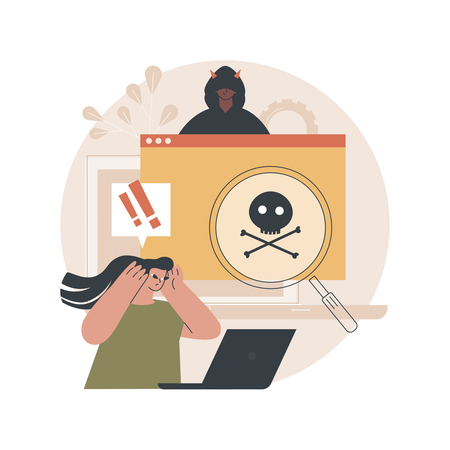Web content is the heart of a website, and the best way to protect it is by using a website malware scanner. The malware scanners can quickly scan your website for viruses, worms, Trojans and other threats. It helps to note that some websites are more likely to become targets of malicious activity than others. If you're looking for a way to secure your site against viruses and other malware, consider using a website malware scanner.
Website Malware Scanner Basics
Website malware scanners analyse the content on a site before it reaches the users' browsers. The scanner gets this information from various sources, including the web server and compares it against a list of known malicious files or URLs. The files are those identified in the past as conveying malware or viruses. The best way to use a website malware scanner tool is by installing it on your web server.
The tool scans every page on your site before delivery to users' browsers so that you can arrest problems before they happen. The first step in securing your website with a malware scanner is to find one that works well with your particular needs. You will need real-time protection against viruses and other malware by creating an antivirus engine within the browser that can detect new threats immediately after they appear on the page.

Signs of Malware
Website malware usually comes in many forms. Trojan horse programs enter your computer system without your knowledge or permission. They may disguise themselves as helpful or necessary programs, such as antivirus tools or games. These programs often have names similar to legitimate ones, but hackers design them to hide their true purpose.
Once installed, they'll start collecting information about the websites you visit, the files you download and how often you use specific applications on your computer or mobile device. They may attempt to send this information back to hackers without your knowledge or consent. Drive-by downloads are automatic features activated when you visit specific web pages.
The following signs could indicate a malware infection.- Your computer starts lagging or freezing up.
- Alteration of login information
- You see strange pop-ups or notifications on your screen or get a message about an update that needs installation.
- You notice a change in specific details.
- Your browser suddenly stops responding. If it does not go back to normal after several minutes, this may indicate malware.
The Effects of Website Malware
The effects of website malware can be devastating to your business. Malware can affect your website's performance and security and even make you lose essential data. Website malware is a grave threat to your online security and privacy. This kind of malicious software can capture sensitive information from you, such as your bank account details and passwords. The details are instrumental in accessing your bank accounts and stealing money from them.
Malware also has the potential to tarnish your reputation online by posting unfavorable reviews on sites like Yelp. It can also pose as a legitimate website to trick users into downloading malicious files onto their computers.
Protecting Your Site From Malware
The first step in prevention is learning about the different types of malware. Here are some common types of malware:- Malvertising: Malvertising is when hackers use advertising networks or other third-party websites to spread malware.
- Phishing: Phishing scams are criminals' attempts to get personal information using clever techniques, such as your name, address or credit card number via email.
- Trojans: Trojans programs can steal passwords and other sensitive data from your computer when you open an infected attachment or download a file from the Internet.
- The ransomware malware encrypts the files and programs on your computer system and holds them hostage. They will then demand payment before releasing them back into your system again. If you ever want them back, you'll need technical skills to decrypt those files. As such, the only alternative is to pay for their release.
Conclusion
While there are many reasons why you want to secure your website, the main reason is to prevent hackers and other malicious actors from accessing your content. To do this, you will need to ensure no one has access to your website. While this may seem daunting, you can make this process easier in several ways. One of the surest ways to secure your website is by using a website malware scanner. These malware tools scan websites for malicious content or code. Once they find anything suspicious, they will alert you before any damage occurs.





